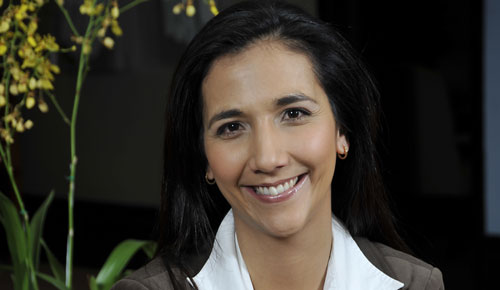
Standard Bank caused a bit of a furore on Twitter on Thursday when it tweeted that it had lodged a complaint with the Advertising Standards Authority over an advertisement competitor First National Bank placed in weekend newspapers.
It accused its rival of “misleading advertising”.
Although the bank says filing the complaint is normal procedure, it came in for a hard time on the social networking platform from users, with some suggesting the bank was being petty on account of FNB’s recent successes in retail banking and the popularity of a series of advertisements featuring “Steve”, an unnamed bank’s supposed call centre agent.
Bellinda Carreira, director of interactive marketing for at Standard Bank, says the perception among some people on Twitter is that the bank’s complaint is against the “Steve” campaign. “This simply isn’t the case,” she says.
Carreira concedes the campaign is “clever” and has been successful for FNB and that Standard Bank “welcomes the competition”.
What the bank is unhappy about is its Sunday print ad. Carreira says the ad makes three spurious claims. “The first concerns Internet and mobile banking, the second concerns fee-free accounts, and the third online share trading.”
She says the ad claims FNB is the only bank to offer free cellphone, online and telephone banking. “That’s not the case at all,” says Carreira. “In fact, we picked up on the same point in 2003 and won at the [advertising authority], so I’m not sure whether FNB has simply forgotten that fact or chosen to ignore it.”
The second objection is to FNB’s assertion that it’s the first to offer a free monthly fee account. “We have two accounts with no monthly fees, the first of which — the Mzansi account — was launched in 2004.”

Standard Bank’s third point of contention is that in the advertisement FNB states that it is the only SA bank to offer an online share investing facility. “Standard Bank has offered this service for many years and has more than 50 000 customers that use it,” says Carriera.
“We wanted to let our communities know first,” Carreira says when asked why the issue was taken to Twitter. “We didn’t want them to find out via a third party and it also allows us to have the conversation immediately and disseminate the facts. Whenever we do a press release, we tweet it, too, and have done that since we started our social media accounts four years ago.”
Carreira downplays the social media aspect, saying the goal wasn’t to take the fight to Twitter and that the move was “not part of a specific strategy” but rather was “done as a matter of course”.
She says Standard Bank underestimated the fervour of the “light-blue-blooded Twitter following”, a reference to FNB loyalists on the social platform.
“Kudos to FNB for creating that kind of loyalty for their brand,” she says. “It has a very active Twitter group and that’s great, but surely people want the facts and the real issue here is free, fair and accurate advertising. If FNB is found to be in the wrong, does the vitriolic commentary still hold?”
Carreira says Standard Bank realises it “can’t control what the community wants to talk about, and wouldn’t try to”. She says complaints to the Advertising Standards Authority are not unusual and that one of the benefits of social media is that “we have the luxury that these conflicts don’t have to happen behind closed doors. We can debate these issues publicly.” — Craig Wilson, TechCentral
- Subscribe to our free daily newsletter
- Follow us on Twitter or on Google+ or on Facebook
- Visit our sister website, SportsCentral (still in beta)




